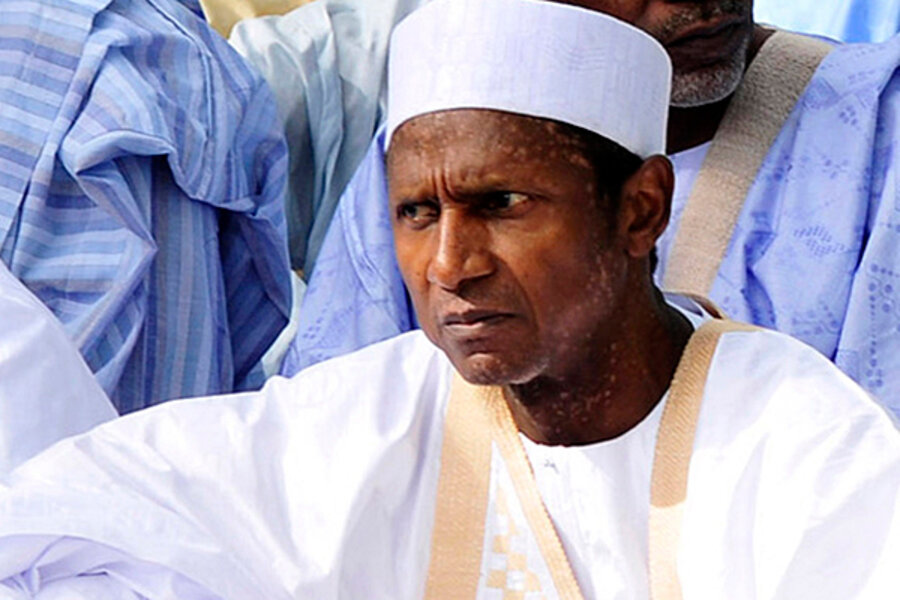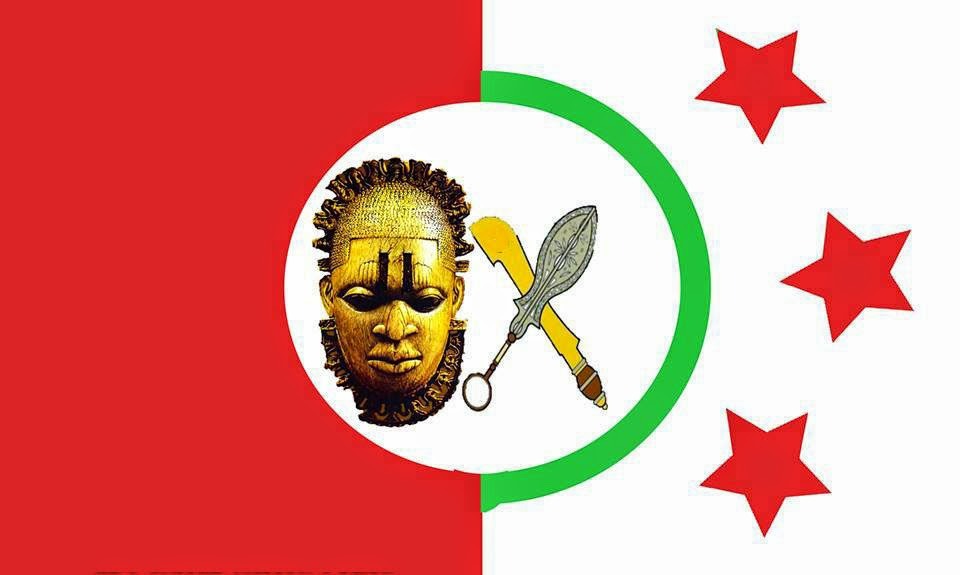National Broadcast by
His Excellency President Olusegun Obasanjo GCFR
ON THE IMPOSITION OF A STATE OF EMERGENCY IN EKITI STATE
Abuja,
October 19, 2006
Dear Fellow Compatriots,
Unfortunately, I am, once again, constrained to address the nation on an issue that clearly presents danger of possible breakdown of public order and public safety in a part of the country and an unconstitutional and an illegal act that may set a bad precedent and thereby lead to breakdown of public order and public safety elsewhere in the country, if allowed unchecked and unmitigated.
Most Nigerians have made personal and collective sacrifices to enthrone peace, stability, democracy, rule of law and constitutionality. It is, therefore, very painful and disheartening when these ideals to which all of us must be committed are being compromised, contaminated or mediated in any way or form especially by those who are supposed to be their custodians.
The situation in Ekiti State which culminated, on Monday, in the Speaker of Ekiti State House of Assembly being sworn in as Acting Governor is patently unconstitutional and, on that same day, the Attorney-General of the Federation issued a statement to that effect. Let me say from the onset that, for us at the Federal Government level, the issue is not the constitutional right of a State
House of Assembly legitimately removing the State Chief Executive or Deputy Chief Executive for misconduct, the issue clearly is the due process and the constitutional and legal procedure to be followed without violating the Constitution and without breaching the rule of law. Section 188 sub-Section 1 of the Nigerian Constitution states “The Governor or Deputy Governor of a State may be removed from office in accordance with the provisions of this Section. In sub-Sections 2 to 11, the procedure and process are set out in detail.
The State House of Assembly served the notice of impeachment. The Chief Judge of the State empanelled a team to investigate and report to the House. The State House of Assembly was dissatisfied with the type of people put on the Panel. They were seen as friends of Governor Ayo Fayose and those who will not be objective. But rather than let the legal representative of the House of Assembly object to those considered not likely to be objective or to all of them one by one if need be and which would have compelled the Chief Judge to replace them, the State House of Assembly carried out the unconstitutional act purporting to suspend or remove the Chief Judge.
Section 292 of the Constitution reads:
Sub-Section (1) - A judicial officer shall not be removed from his office or appointment before his age of retirement except in the following circumstances:
sub-sub-Section a(ii) - In the case of Chief Judge of a State, Grand Kadi of a Sharia Court of Appeal or President of a Customary Court of Appeal of a State, by the Governor acting on an address supported by two-thirds majority of the House of Assembly of the State, praying that he be removed for his inability to discharge the functions of his office or appointment (whether arising from infirmity of mind or of body) for misconduct or contravention of the Code of Conduct.
(b) in any case, other than those to which paragraph (a) of this sub-Section applies, by the President or, as the case may be, the Governor acting on the recommendation of the National Judicial Council that the judicial officer be so removed for his inability to discharge the functions of his office or appointment (whether arising from infirmity of mind or of body) or for misconduct or contravention of the Code of Conduct.
In plain language, only an address from the Governor can lead to the removal of a Chief Judge by the State House of Assembly and a recommendation by the National Judicial Council can lead to the removal of an ordinary judicial officer. Neither of these conditions was present in the case of Ekiti State. This makes the act of the State House of Assembly of Ekiti in removing the Chief Judge unconstitutional.
Following on this is the appointment of a replacement Chief Judge of a State House of Assembly which is equally unconstitutional.
Section 271(1) of the constitution reads -
“The appointment of a person to the office of Chief Judge of a State shall be made by the Governor of the State on the recommendation of the National Judicial Council subject to confirmation of the appointment by the House of Assembly of the State”.
Again, in plain language, the process of appointing a Chief Judge of a State is the National Judicial Council, which recommends to the Governor who makes the appointment after confirmation by the State House of Assembly. Here, the job of the House is confirmation and NOT, I repeat, NOT recommendation nor appointment. By the unconstitutional act of Ekiti State House of Assembly, they took upon themselves the duty of the Judiciary, i.e., the National Judicial Council and the duty of the Chief Executive, i.e., the Governor. It is a clear case of usurpation of power. It is dangerous for our democracy, particularly for the hallowed principle of separation of power to allow this flagrant violation of the Constitution to go on unchecked or to remain stabilized and sustained.
As a result of the starting base of the impeachment process in Ekiti State being unconstitutional, there is no base for the edifice to stand. Something cannot stand on anything.
This has led to the situation of Mrs. Olujinmi claiming to remain the constitutional Deputy Governor and the Acting Governor in the absence of Governor Ayo Fayose while, at the same time, Ayo Fayose claiming in hiding to be Governor, and the Speaker claiming to have been sworn in as the Acting Governor. We now have a sad and ridiculous but unacceptable situation where there are three purported Governors in the State.
The action of the Speaker in spearheading serial unconstitutionalities for him to be the beneficiary at the end of it all is odious and leaves much to be desired and could not have been in contemplation by the makers of our Constitution. Impeachment is a very serious and sacred duty and responsibility of law-makers, which should not be undertaken lightly or for personal aggrandizement.
The situation in Ekiti State must not be allowed to crystalise and to be consolidated. The time to save our democracy from being undermined and badly eroded is now. We must save our democracy and preserve our Constitution and that was the oath of office I took. We must save Ekiti State from anarchy. And we must preserve law and order, good governance and ensure probity in governance in Ekiti State.
Ekiti people are normally known to be peaceful, industrious, honest, straightforward, consistent and reliable people. They deserve peace, stability and honest leadership. The path may be rough and tough, but we have to follow it in the interest of today and tomorrow.
The Nigerian Constitution 1999 foresees the ultimate of emergency in part or all of Nigeria and provides for it as the last resort.
Therefore, by virtue of Section 305 of the Constitution of the Federal Republic of Nigeria (1999), I hereby declare a State of Emergency in Ekiti State. This declaration has been published in a Federal Gazette as of today.
The Governor and his Deputy and those who purported to be Acting Governors or Deputy by this declaration will cease to be in charge of the affairs of Ekiti State. An Administrator to manage the affairs of Ekiti State in the person of Brigadier- General Tunji Olurin (rtd.) is hereby nominated for six months in the first instance.
The Ekiti State House of Assembly also goes on suspension as the formal legislative body of the State with immediate effect for six months. Having a State Assembly in position under the State of Emergency is incongruous and may not allow for the expeditious actions that the Administrator will need, to put the State back into a situation of peace, harmony, security for all, and maintenance of law and order throughout the State. Elected officials below the State level are not suspended. The Federal Gazette containing the Declaration has been forwarded to the National Assembly in accordance with the Constitution.
It is hoped that the Administrator will not need new laws for the administration of the State. But if he does, it will be in the form of Regulations which he will submit to the President for consideration by the Federal Executive Council and promulgated by the President for the State.
Violence and unconstitutionality bring no good to any people. It retards development, scares away investors, stultifies creativity, and contaminates social relations. At this period when we are all joining hands to carry out far-reaching fundamental reforms to ensure growth, stability, development and democracy, we cannot afford or tolerate acts of corruption, unconstitutionality and anarchy, precipitated by poor, indecent and corrupt leadership that are insensitive to the conditions of all the people.
The decision to impose a State of Emergency in Ekiti State was based on the collective desire to strengthen our democratic practice, institutions, and values. This decision would without a doubt enhance security as well as protect the stability and corporate existence of our nation for which many have died.
It is my hope and prayer that this period of State of Emergency will be used by the Administrator and all peace-loving people in and outside the State to bring peace and join hands to promote democratic values and enshrine the values of transparency, accountability, social justice, love, good neighbourliness, equity, respect for one another and good governance.
May God bless Ekiti State.
Long Live a united, peaceful, secure and democratic Federal Republic of Nigeria where God’s love will continue to manifest.

















